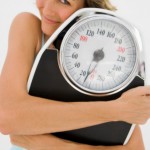5 Fat Loss Tips
1. Eat More Lose More!
By eating small meals throughout the day you will keep your energy levels high and your blood sugar levels stable, not to mention boosting your metabolism. Think about it this way; you wake up in the morning and start the fire (your metabolism). To get this fire up and running you will need to add newspaper, kindling and wood (plenty of food). Once the fire is burning, adding small amounts of wood every few hours (food) will maintain a steady flame.
On the other hand, if you do not take the time and effort to light the fire first thing (missing breakfast), you will have no fire for the rest of the day. Likewise if you get the fire roaring in the morning but ignore it till dinner (skip meals), it would have gone out.
2 Eat More Protein
Protein is the building blocks for the body. Try to consume a complete protein with every meal you eat. When we say complete we mean it has all 22 branched chain amino acids. To make this a little simpler 'if it runs, swims or can fly' - then eat it!
By consuming protein with every meal, you will feel fuller and will be able to keep your blood sugar levels stable reducing sugar cravings.
3 Get your Carbohydrates in the Form of Fruits and Veggies
Did you know the word sugar is synonymous with the word carbohydrate; yes they are the exact same thing.
When you consume carbs/sugars, insulin is secreted due to the rise on carbs/sugars in your blood stream. This is done so your muscles can utilise the carbs/sugar as a fuel source. If this carbohydrate fuel is not 'burned' within a short period of time, it will be used to store adipose tissue - FAT.
Carbohydrates are a very misunderstood topic so we will simplify it for you. Eat a large selection of great choice carbs - veggies, salads and fruit that are high in fibre and nutrient dense. Avoid poor choice carbs - pasta, cereals, rice, potatoes, flour, grains and sugar.
4 Eat your Dam FAT
Fat is responsible for the manufacturing and secretion of many hormones such as mood and stress hormones. Fat also helps the body maintain homeostasis (balance). Fat assists in the absorption of vitamins A, D, E and K and Cholesterol. Cholesterol is a very important ingredient in manufacturing Testosterone, Progesterone, Estrogen and Serotonin and protects all cells from free radial damage.
Again just like carbohydrates, there are good fats and bad fats. Good fats include olive oil, butter, coconut oil, fish oil, nuts and seeds and avocadoes. Bad fats include trans-fats, margarines, low fat spreads and vegetable oils
5 Do your Intervals
The key ingredient in interval training is the intensity. When you raise the intensity of a workout, your EPOC will increase, Excess Post-Exercise Oxygen Consumption. This is basically the amount of calories you burn after the workout. When you push your body to high intensities, the body requires greater recovery. It is within this recovery that you burn significantly more calories compared to a steady-state workout. Your heart rate, body temperature and blood lactate significantly rise during intense workouts, so your body works hard to regulate these back to their normal function. Your muscle fibres need to repair and your glycogen levels must restock in this recovery stage. EPOC also know as the after burn effect will boost your metabolism and continually burn calories for up to 48 hours after your workout.
Stay Healthy
Results Personal Training specialises in Fat Loss, using a holistic approach to diet and exercise. Results have helped thousands of individuals gain health, confidence and a body of their dreams.
- Prev:4 power foods for fat loss
- Next:Fat Loss Thoughts
-
Discover How Your Metabolic Endocrine Type Holds the Secret to Weight Loss!
As you may know, REAL Metabolic Typing recognizes 24 different meta
-
Creating the Body You Love
When starting a regular fitness regimen, we focus so much energy on
-
Natural Foods That Help Burn Belly Fat
For long now people have debated on this
-
How To Lose Weight - 3 Simple Steps That May Surprise You!
Wondering how to lose weight? Sick of thinking about it and just want
-
South Beach Diet Information And Recipes
It is a widely held belief that the key to weight loss is finding the
-
Simple Tips for Easy Weight Loss, Part I
Copyright 2005 Monique HawkinsCurrent statistics reveal that 75% o
- DON'T MISS
- Organic Home Plans For Cellulite
- How To Find A Diet That Works
- Absolutely Free Diet Options – How Can You Find The Best One?
- Success of weight-loss surgery determined by insulin cells
- Why Is It Important to Help Boost Your Metabolism
- Work It Out!
- How Anyone Can Eat Healthy On A Tight Budget
- Diet plans to lose weight
- 6 Top tips for a tight and toned tummy
- Train Your SubConscious Mind To Lose Weight




